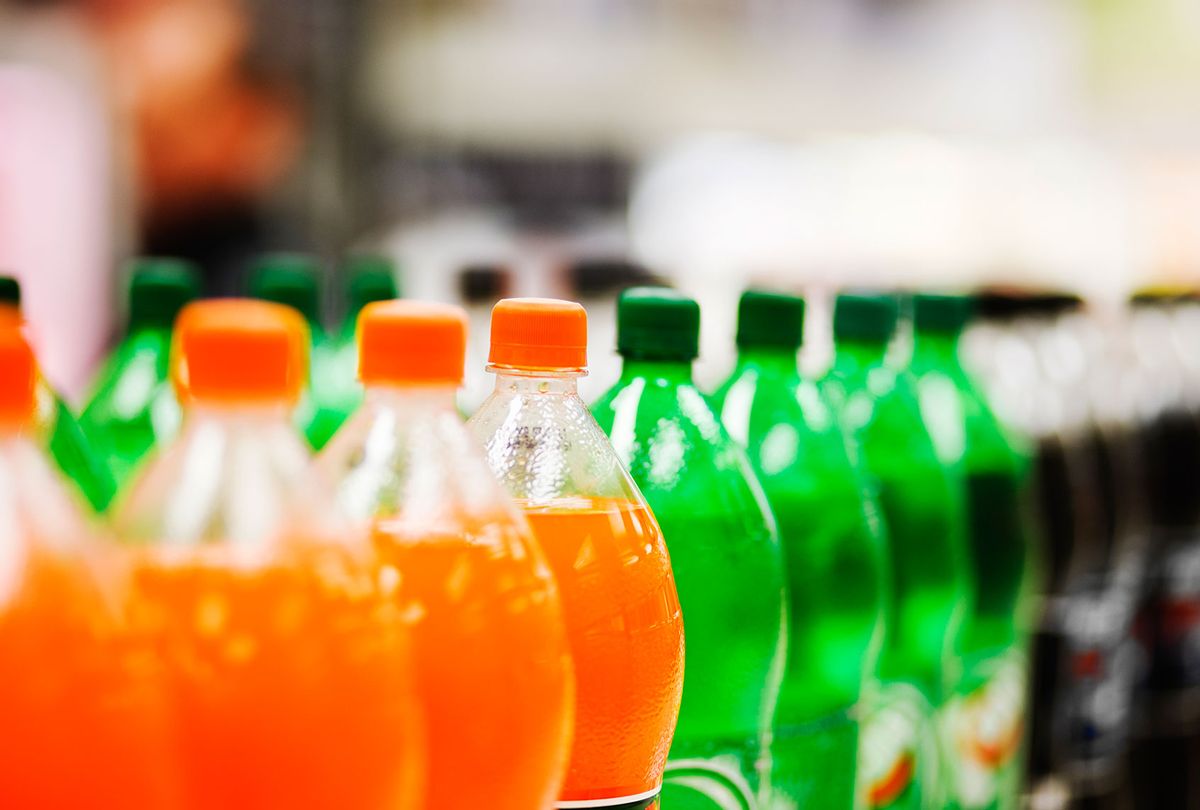I have an unvarnished, immense affinity for Mountain Dew. No matter if it’s accompanying chicken parm, a Thanksgiving or Christmas meal or a tuna sandwich, a crisp, effervescent, subtly tart glass is the perfect complement. My brother and I have both been utterly entranced by the siren song of Mountain Dew for over a decade (enough so that I mention it in my professional bio).
My pals have had a running joke for years that my general culinary proclivities lean rather hifalutin, except for Mountain Dew, which could be considered a glaring anomaly. The beverage — which, as reported by Ian Douglass at Mel Magazine, borrows its name from a common term for Appalachian moonshine — tends to be culturally derided as lowbrow or gamer fuel.
But to all the Dew haters out there, I ask: Did you happen to see the FDA’s recent warning about brominated vegetable oil, or BVO? Because if you did, you might realize Mountain Dew is actually healthier than we all thought.
Well, at least by a little.
So, first and foremost, what on earth is BVO? Brominated vegetable oil "is a vegetable oil that has been modified with bromine, a natural element that can be used as an alternative to chlorine in swimming pools and historically was used as a sedative," as Teddy Amenabar and Kelyn Soong write for The Washington Post.
We need your help to stay independent
While it's been used as a food additive since the 1920s, especially in recent years to keep added citrus flavors from separating from the liquid, BVO definitely doesn't seem like something you willfully want to consume, especially if you're a big-time soda drinker and consume a bunch per day. However, as of last week, the FDA has "proposed to revoke the regulation authorizing the use of brominated vegetable oil (BVO) in food" because it “is no longer considered safe" according to studies done in collaboration with the National Institute of Health.
Interestingly enough, the agency actually determined in 1970 that BVO was no longer “Generally Recognized As Safe” (GRAS) and began overseeing it under their food additive regulations, but has taken 53 years to take this next formal step.
This is despite the fact that, as Ayana Archie at NPR writes, a 1976 study of the consumption of brominated sesame and soybean oils by pigs “found their hearts, livers, kidneys and testicles had been damaged.”
Want more great food writing and recipes? Subscribe to Salon Food's newsletter, The Bite.
“The FDA said Thursday it is considering reversing its approval of brominated vegetable oil, or BVO, in beverages following a recent study in rats that found the ingredient could cause damage to the thyroid,” Archie reported.
However, fellow DewHeads can rest easy. While Gabe Huari writes for USA Today that there are currently citrus-flavored sodas that still include BVO in their formulas or recipes — including Sun Drop soda, as well as the Food Lion and Great Value brand sodas — PepsiCo, Mountain Dew’s parent company, pulled BVO from their beverages’ formulas. For Lifehacker, Beth Skwarecki reports that "Pepsi and Coca-Cola both said in 2014 they would no longer use BVO in their drinks,” and according to a 2020 USA Today fact-check by Ian Richardson, the companies did just that.
Per Kate Gibson at CBSNews, though, a spokesperson for Keurig Dr. Pepper, which owns Sun Drop, sent an email stating "we have been actively reformulating Sun Drop to no longer include this ingredient and will remain compliant with all state and national regulations."
California, along with the EU and Japan, has already banned the use of BVO as a food additive, so it will be interesting to see if the FDA’s proposal for a national ban takes hold. If the ban does go through, it wouldn't be until 2025 “at the earliest,” as per Skwarecki.
That would be a great development for national health, one worth celebrating with a toast. Perhaps with a chilly glass of Mountain Dew?



Shares